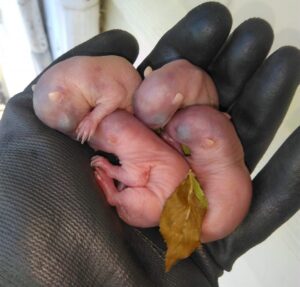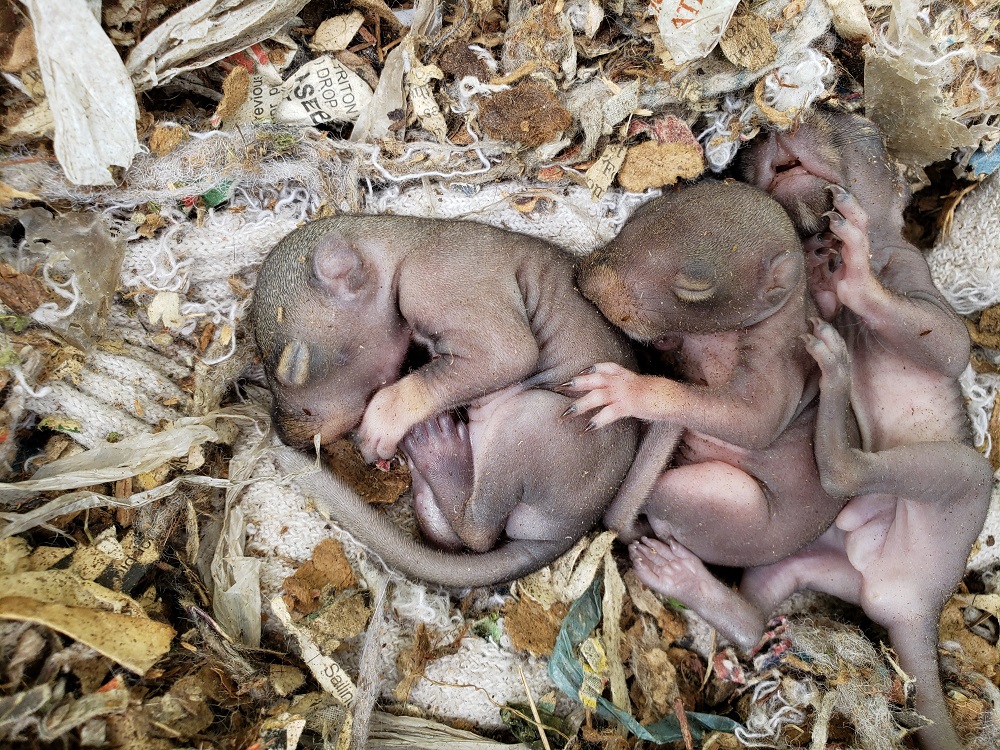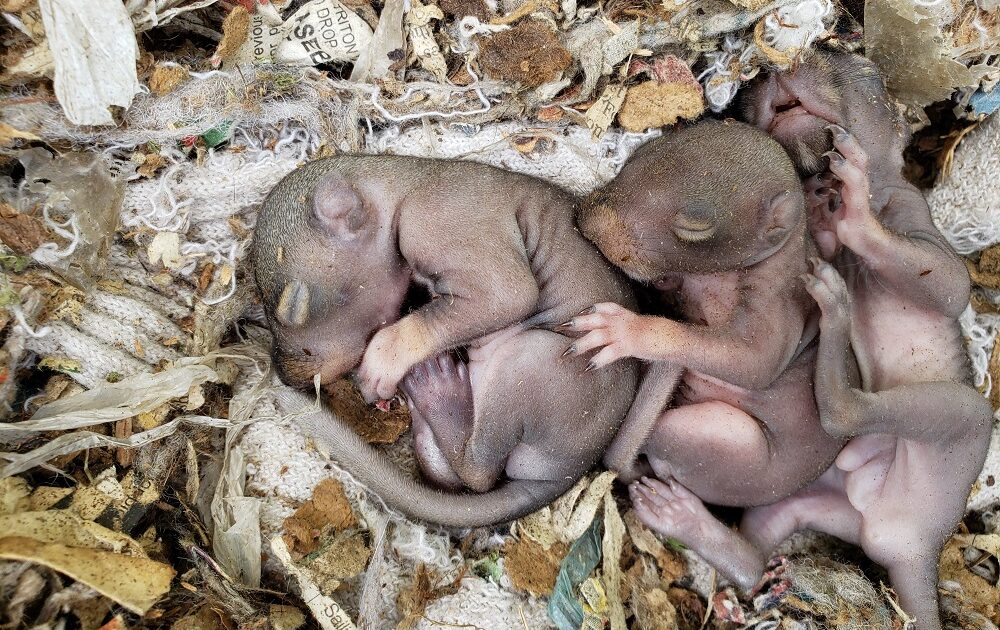Summer is a season where we see many people slowing down as they take a break from the hectic schedules that dominate life in the modern world. But wildlife citizens in Durham and other communities are often quite busy. Among the most active wildlife are squirrels, these furry foragers cause homeowners concern from time to time resulting in calls to expert wildlife services. Professional wildlife teams like Skedaddle offer Durham residents expert wildlife control that prevents and reduces the impact squirrels have on their properties.
Squirrel Birthing Seasons
Squirrels have two birthing seasons; one in early spring (March-April) and the second which takes place in late summer to early fall (August-September). We are therefore in the second baby squirrel season of the year. This means that Durham residents should expect to see more maternal and especially baby squirrels scurrying around. They should especially be on the lookout for nests of seemingly abandoned baby squirrels as quite often, mother squirrels get hurt and fail to make it back to their nests where the kits are waiting.
Encountering Squirrels
Baby squirrels are born blind and hairless and are not weaned from their mother until 10-12 weeks. While the baby squirrels you encounter are unlikely to be vulnerable (do not approach the babies as their mother will return shortly), there are some signs that can indicate that a baby squirrel is on its own and therefore vulnerable. The biggest of these signs is the absence of shyness around people. A squirrel that willingly approaches people or does not scramble away when humans are near has probably been without a mother for a while. The squirrel is likely about 6 months old and would only approach human beings or other animals for food and water when it gets hungry or thirsty enough. This is a situation that would only occur if something happened to the mother.
Of course, you will feel sorry for the furry little cutie and instinctively you will want to just reach down and comfort it. But wildlife experts advise against it. The scent from a human hand can deter their mother from recognizing their baby, leading them to possibly being abandoned. The more domesticated a wildlife animal becomes, the less likely it is to survive in the wild. Instead of touching the young squirrel, citizens are advised to call animal protection services to rescue them. They will care for the animal until it can be released into the wild.
If you find out that a squirrel is occupying your shed, garage or other space, do not seal the access hole as you may wind up trapping the poor squirrel (or a member of its group especially babies, since there’s no real guarantee that others weren’t living there as well). Let the experts examine the space to ensure that all squirrels have truly left and then they can seal the hole.
How Expert Squirrel Control can Make a Difference

If squirrels are causing you grief this summer, get expert intervention. Trained professional wildlife technicians can remove squirrels from your property while allowing them the best opportunity to continue their normal lives in the wild. These experts will use safe tactics to encourage squirrels to vacate your premises. A popular removal technique used by experts is the one-way door that is placed over the access hole. This door allows squirrels to leave but prevents them from returning. If babies are living inside the building, the wildlife technician will gently remove them and place them in a specially designed baby box outside the access point so that they can be retrieved by their mother. They will also offer deterrent services to ensure that the furry foragers stay away.
Steps You Can Take to Keep Squirrels Away
You can play your part in keeping squirrels away by ensuring that the things they love to eat (seeds, nuts, acorns, etc) aren’t lying around your space. If you have bird feeders, for example, you may want to consider removing or squirrel-proofing them as the furry foragers will be attracted by the seeds. You should also get expert wildlife prevention teams to inspect your property twice each year, before the squirrel birthing seasons begin, and to install or reinforce squirrel prevention mechanisms.
Squirrels are part of the ecosystem in Durham and as a resident or visitor, you’re likely to have contact with them from time to time. The key to a harmonious and manageable squirrel-human relationship is the use of expert wildlife control services.




